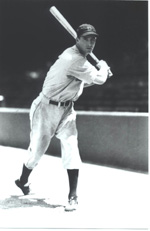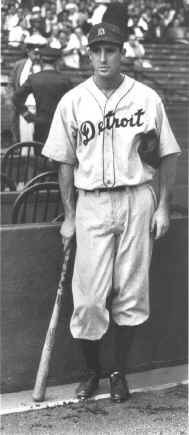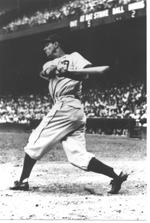All photos courtesy of KINO INTERNATIONAL
In the second half, the women return as a group to Vienna. They swim together in Hakoah’s luxurious pool (appropriated by the Nazis within weeks of the “Anschluss” when Germany annexed Austria in 1938), wearing bathing suits with prominent blue Jewish stars carefully patterned after their original uniforms. Some of the scenes shot in Vienna are uncomfortable and difficult to watch. Zilberman undoubtedly wants his audience to feel the ambivalence of return. After all, no one left voluntarily and all the women are aware of having been expelled from the place they considered home.
While the film possesses some flaws and inconsistencies in narration,
WATERMARKS is at its best when the women speak for themselves in the first person. Zilberman’s star is Ann Marie Pisker. Born in Vienna in 1919 and currently living in London, Ann Marie is so self-possessed that it’s easy to imagine her as the 17 year old who won the “All Across Vienna” Danube race in 1937. As she recounts her adventures, she tells us her father was constantly on edge because she had no concept of danger. Even in the twilight of their lives, Ann Marie and her friends still embody the triumphant spirit of
Hakoah.
At the same time the Hakoah women’s swim team was winning medals in Austria, a young Jewish ballplayer was swatting homeruns out of ballparks in the United States. There’s nothing poignant or bittersweet about
THE LIFE & TIMES OF HANK
GREENBERG, a joyously linear documentary which traces the career of “the baseball Moses” from the Bronx who became one of America’s greatest Jewish sports stars. This ebullient film, which combines a tight focus on its central character with a concise evocation of the context in which his life resonated, captured 10 film critics association awards in 2001 (including the critics associations in Chicago, Florida and New York).
 |

|

|
|
All photos courtesy of the Ciesla Foundation |
“Hammering Hank,” who began his Major League career with the Detroit Tigers in 1933, was a national hero throughout the 1930’s. He reached his peak in 1938, the year he came within two homeruns of breaking Babe Ruth’s record of sixty homers in a single season. (Ruth’s record held until Yankee Roger Maris finally smashed it in 1961.) Greenberg made a different kind of headline in May of 1941 when he became the first star ballplayer to enlist in the military. After four years of service, he astonished everyone by returning to the Tigers in June 1945 and hitting a homer in his very first game.
Although not a religious man, Greenberg was conscious of his heroic status, especially among young Jewish boys, and he made a deliberate decision to attend Yom Kippur services in 1934 even though the Tigers were in middle of a pennant race. He was devoted to his family, but remained a bachelor for many years. When he finally married in 1946, he married heiress Coral Gimbel. (The Gimbels, prominent Jewish philanthropists, owned a department store empire that included Saks Fifth Avenue.)
Throughout his career, he dealt with anti-Semitic taunting from the bleachers. During the 1935 World Series in Chicago, the umpire had to intervene to stop catcalling from the Cubs bench. He never exploded, but never forgot. Years later, when Jackie Robinson broke the color barrier in 1947, Hank was the first opposing-team player to offer encouragement.
Director Akiva Kempner draws from a huge archive of stills and filmed interviews, including hours of interviews Hank taped before his death in 1986. The brisk 95 minute run time is filled with testimonials from fellow players and sports writers, personal reminiscences from family members, and golden memories from Jewish celebrities such as actor Walter Matthau, lawyer Alan Dershowitz, and Senator Carl Levin.
Spicing up this visual feast is a fabulous soundtrack which opens with NPR’s Yiddish Radio Project host Henry Sapoznick singing “Take Me Out to the Ballgame” in mameloshen. Mandy Patinkin reprises the number during the closing credits. Stuffed in between is a full banquet of musical treasures with particular emphasis on classic swing numbers such as Benny Goodman’s “Sing, Sing, Sing.”
© Jan Lisa Huttner (4/1/05)
WATERMARKS
begins it run at the suburban Wilmette Theater on April 29th and will also play at the Gene Siskel Film Center in downtown Chicago. THE
LIFE & TIMES OF HANK
GREENBERG is available on DVD.
FINAL FF2 NOTE:
This article is a slightly expanded version
of the reviews originally published
in the April 2005 edition of the
WORLD
JEWISH DIGEST
(Volume 2 Number 7)
& is posted here with their permission.
For WJD subscription information:
Call 312.332.4172 extension 42
or
Fax 312.332.2119
